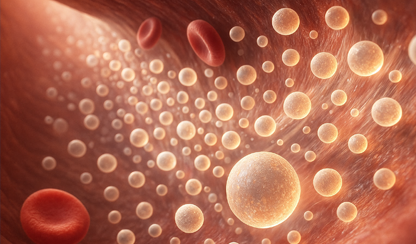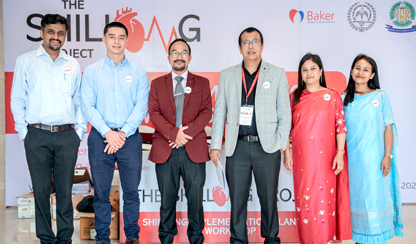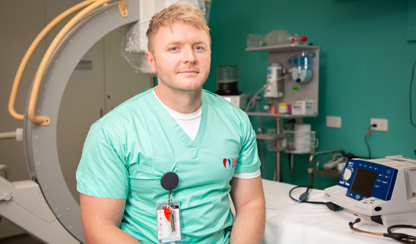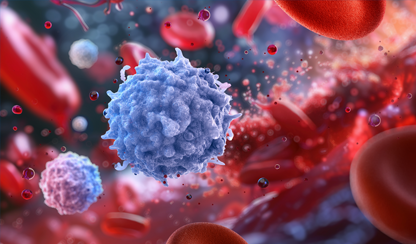05 January 2021
Media release
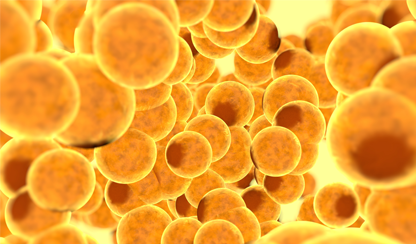 Scientists at the Baker Heart and Diabetes Institute have discovered a gene that is important in regulating the storage of dangerous fat to prevent it becoming toxic and driving diabetes and heart disease.
Scientists at the Baker Heart and Diabetes Institute have discovered a gene that is important in regulating the storage of dangerous fat to prevent it becoming toxic and driving diabetes and heart disease.
The preclinical study, published in Nature Communications, showed that removal of this gene meant that dietary fats were more readily stored in their rightful place, adipose tissue, helping to protect other tissues from these fats that might otherwise lead to diabetes, heart disease and fatty liver disease.
They also found that this gene changed the levels of a ‘master regulator’ in our fat tissue that dictates differences in weight gain between men and women, suggesting that it could be manipulated to alter a person’s predisposition to obesity.
Scientists found that females were more prone to the changes in adiposity when this gene was removed, shedding new light on the triggers that drive obesity in men and women.
With the discovery of this gene as a regulator of adipose tissue function, metabolic health and a key player in shaping sex differences in weight gain, researchers hope that it will be a stepping-stone to developing much-needed prevention and treatment strategies to combat obesity and the metabolic syndrome.
The Baker Institute’s head of Molecular Metabolism and Ageing, and lead author on the study Associate Professor Brian Drew, says that altering the levels of this gene in mice demonstrated they could safely increase fat storage whilst maintaining metabolic health.
He says that fat we consume in our diets, or that is made by our own body, plays an important role in supplying our bodies with a long term energy supply that we need to survive. However, if all of the fat is not used up as energy, it gets stored in our adipose tissue.
“The storing of fat is a normal and necessary function, which developed through evolution to allow our bodies to survive in periods of famine,” he says.
“However, in modern society, we very rarely have periods of famine and usually have an oversupply of fat and energy, where our adipose tissue becomes too full and overflows.”
Associate Professor Drew says when this happens, the excess fat gets stored in organs where it normally wouldn’t such as the liver, muscle and heart. In these organs, the fat becomes toxic and can drive many chronic diseases such as diabetes, fatty liver disease, cardiovascular disease and poses an increased risk for up to 14 different types of cancer.
“In Australia alone over 65% of adults are either overweight or obese,” he says.
“This means that obesity now kills more people than smoking, and it has become a major burden on our health and economic systems. However, though we know quite a bit about how and why obesity causes disease, we still don’t fully understand why it varies so differently across the population, between different populations, and even between sexes.
“This is where genetics comes in. It is increasingly appreciated that genetics contributes about 50% of how our body develops and reacts to obesity. One theory is that these genes control how and where we store fat, and by identifying the genes that affect these processes such as the one in this study, it can help us find ways to treat people with obesity, or even prevent it in the first place.”
Chair of the Monash University Department of Surgery, Alfred Health, Professor Wendy Brown says there is an urgent need for effective treatment options for obesity. “Obesity is our most prevalent disease causing not only ill health but a lack of wellbeing and reduced length of life,” she says. “Whilst prevention is what we ultimately hope for, there are many people in our community with obesity who would benefit from an effective treatment. Only three per cent of people with obesity are able to lose weight and keep it off with diet and exercise alone. Findings such as this are the first step in developing effective treatment options, not only reducing weight but improving health.”
For further information or to organise interviews please contact:
Tracey Ellis
T: 03 8532 1514
M: 0433 781 972
E: tracey.ellis@baker.edu.au


